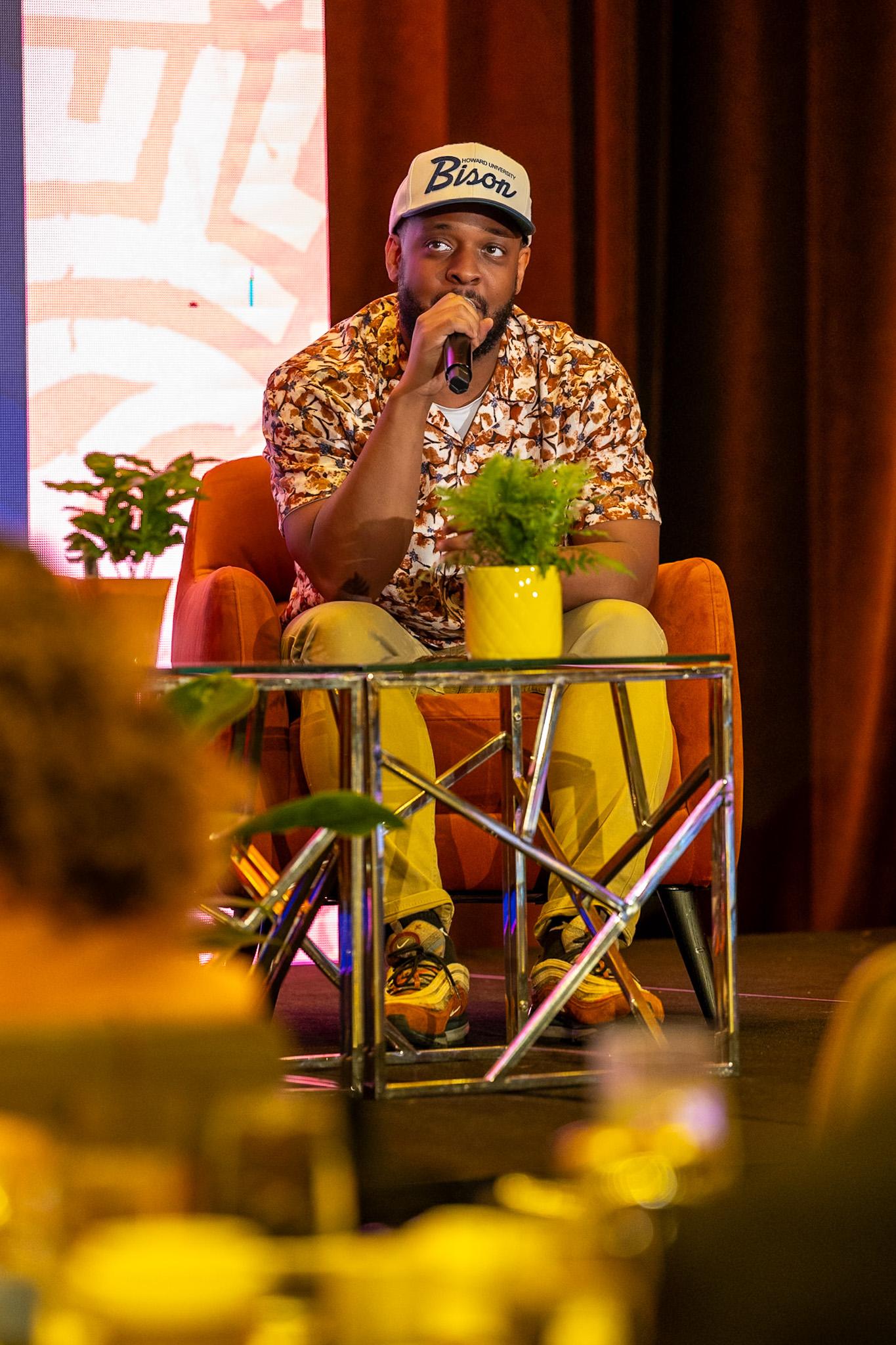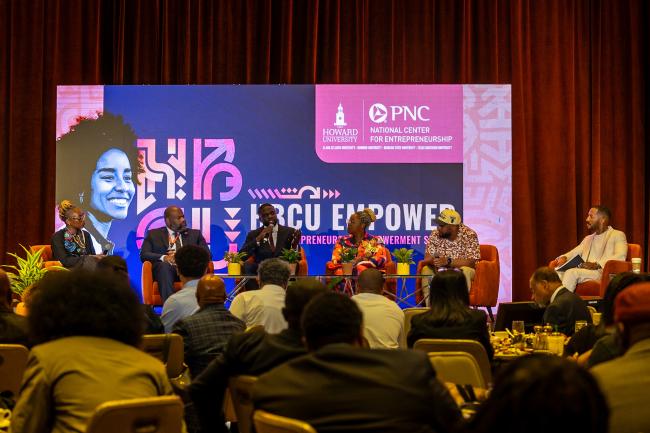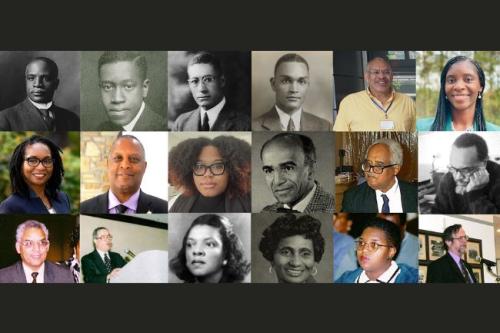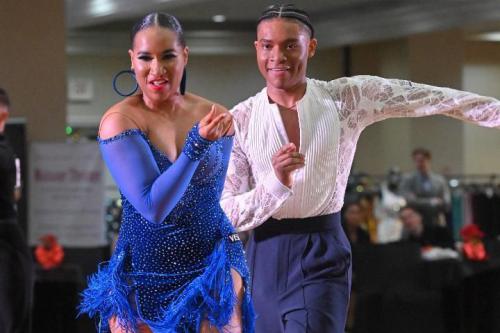Amid the grandeur of D.C.’s Marriott Marquis hotel, hundreds of students, alumni, and emerging entrepreneurs gathered for the 2025 HBCU Entrepreneurship Empowerment Summit, a vibrant showcase of possibility and preparation for the entrepreneurial journey ahead. The three-day event, hosted by Howard University and the PNC National Center for Entrepreneurship, captured the imagination of attendees eager to thrive as entrepreneurs of color in today’s rapidly evolving business landscape.
The summit commenced with a celebration, fittingly held on the evening of Juneteenth, blending the power of historical reflection with forward-looking determination. Attendees mingled freely, visiting booths at the pop-up marketplace filled with HBCU-themed apparel, artisanal products, and innovation displays, immediately embedding themselves within a tangible, thriving community of creators and change-makers. This atmosphere, lively yet purposeful, underscored a powerful message: Entrepreneurship is as much about nurturing supportive communities as it is about launching groundbreaking ideas.
Over the next two days, conference sessions were curated to equip entrepreneurs at every stage with the practical tools and strategic insights necessary to navigate a complex, competitive marketplace. Workshops and interactive sessions addressed essential topics: capital access, digital marketing, navigating artificial intelligence, and utilizing other emerging technologies. Across this wealth of learning, a subtle theme emerged: Entrepreneurs of color in 2025 must deftly combine their passion and cultural authenticity with a savvy command of cutting-edge business strategies and emerging opportunities, leveraging their community resources in full to ultimately maximize their successes.
Alumni Panel Highlights Dynamic Journeys in Entrepreneurship
Among the sessions, Friday’s lunch panel discussion, “Legacy & Launch: Empowering HBCU Alumni Entrepreneurs,” resonated deeply with attendees. The audience found inspiration from five visionary entrepreneurs — Nicholas Perkins (MBA ’13), Luke Lawal Jr., Jabari Johnson (BA ’09), Jasmine Hudson, and Angel Gregorio (’08 COAS; ’11 HUGS) — whose journeys exemplify the diverse and dynamic paths available to entrepreneurs of color.
Perkins, an alumnus of Fayetteville State University and the Howard University School of Business, has seen his entrepreneurial journey revitalize the iconic hamburger chain Fuddruckers. He spoke passionately about harnessing heritage and legacy brands as powerful assets, his narrative illustrating how entrepreneurs can tap into existing communities and cultural pride to reinvigorate traditional business models and breathe new life into beloved but underutilized assets. Perkins reminded attendees that entrepreneurial innovation can often begin by honoring and elevating one’s legacy.
Lawal, a native Washingtonian and Bowie State graduate who has founded multiple digital ventures (including the multimedia company HBCU Buzz) and emerged as a leading voice in the cryptocurrency community, brought attendees into the dynamic, fast-paced realm of tech entrepreneurship. His insights stressed agility and adaptability, highlighting that successful entrepreneurs must continually learn, pivot, and boldly explore emerging frontiers to remain competitive. Lawal’s journey emphasized the necessity of immediate and iterative action within the tech landscape.

Johnson, who has been celebrated for his global impact through innovative cultural experiences and media platforms like COLORS Worldwide, expanded on entrepreneurship as a force for purposeful growth and global influence. Johnson described scaling enterprises from local niches to global stages without sacrificing their mission-driven foundations, underscoring the importance of designing business structures to accommodate growth and meaningful partnerships from inception.
Hudson, co-founder of Black Paper Party and an alumna of Tennessee State, enriched the panel with her perspective on leveraging culture, representation, and thoughtful storytelling to carve unique spaces within established industries. Hudson emphasized the transformative power of intentional branding and highlighted how entrepreneurs of color can build ventures that resonate deeply with diverse communities by genuinely celebrating cultural traditions and narratives.
Gregorio, founder of The Spice Suite, rounded out the panel with compelling insights about fostering genuine community connections as a cornerstone of entrepreneurial success. Gregorio shared her experiences building a thriving retail concept rooted deeply in authenticity and community-driven engagement. Her story reinforced how entrepreneurs can create sustainable businesses by ensuring the community’s voice and participation remain central to their strategy.
The seamless dialogue between the panelists presented an integrated and powerful vision of entrepreneurial success in 2025 — rooted firmly in identity and community, empowered by technological innovation, and expansive in its global ambition. Their collective narrative offered a clear yet nuanced blueprint about being a modern entrepreneur.
“Talking to some of these young folks about their dreams and ambitions and what they want to do and how going to an HBCU is shaping their career trajectory was incredible,” Johnson reflected after his appearance. “The future is bright, and everything that these young folks are doing is so impressive. I’m really looking forward to what the next generation of HBCU students go out and create, because the talent is immense.”






